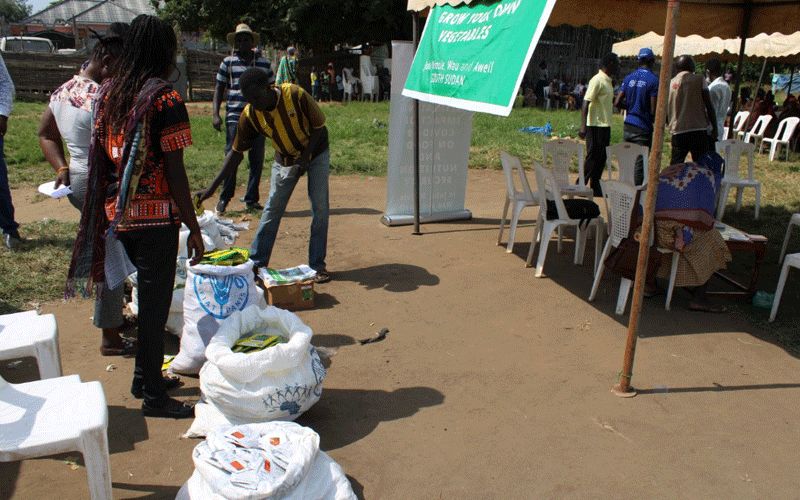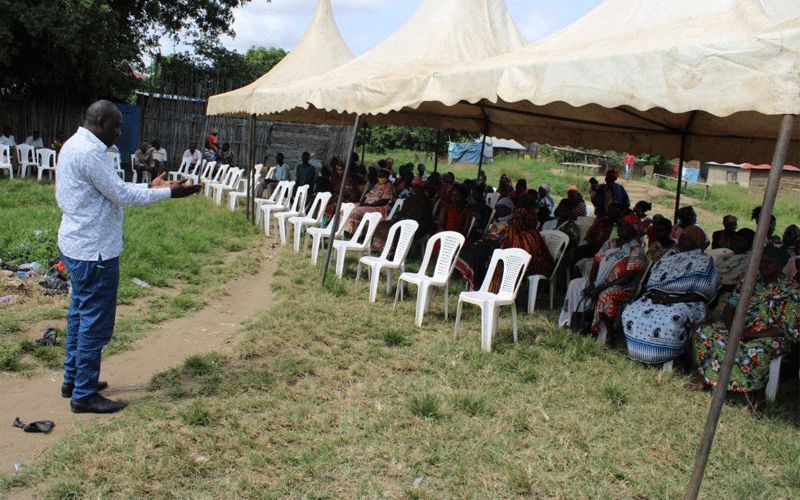Speaking on the sidelines of the event in the Gudele Residential area of Juba city, Pasquale said, “Our today’s target is 671 households but we expect to have a two-day distribution.”

Additionally, plans are underway to set up demonstration farms in the country’s capital that would be used to equip the farmers with efficient farming techniques, Mr. Pasquale further said, adding that extension farmers would be trained to offer services to individual farmers in their small gardens.
“The training is set up for hopefully next week; we will train 15 to 20 beneficiaries to manage the respective demonstration work in the five different residential areas in Juba,” the Caritas official said, and added in reference to the training facilitators, “They will play a role of enlightening the beneficiaries who have received the seeds to go ahead and plant the seeds in their areas.”
According to the South Sudan Caritas Coordinator, the new urban gardens were expected to come in handy in providing food, especially nutritious vegetables, in and out of season.

He said, “The issue of seasonality will not affect the farmers because the original plan is to use the seeds out of the seasons and to cultivate even in the absence of rains using simple irrigation methods.”
Richard Parouk Lomodo, a community elder who also received the seeds and farming tools expressed his appreciation saying that the donation was a timely intervention in South Sudan when many people had already lost their means of livelihood during the COVID-19 lockdown.
“Many of us lost jobs this year due to the pandemic and we don’t have enough money to buy everything from the market. Besides, with these tools and seeds, we will train our families to work within the compound to produce food in a small garden,” said Lomodo.













